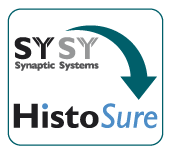Assessing and improving the validity of COVID-19 autopsy studies - A multicentre approach to establish essential standards for immunohistochemical and ultrastructural analyses.Krasemann S, Dittmayer C, von Stillfried S, Meinhardt J, Heinrich F, Hartmann K, Pfefferle S, Thies E, von Manitius R, Aschman TAD, Radke J, et al.
EBioMedicine (2022) 83: 104193.
HS-452 011 IHC-P; tested species: human
Distinct tissue niches direct lung immunopathology via CCL18 and CCL21 in severe COVID-19.Mothes R, Pascual-Reguant A, Koehler R, Liebeskind J, Liebheit A, Bauherr S, Philipsen L, Dittmayer C, Laue M, von Manitius R, Elezkurtaj S, et al.
Nature communications (2023) 141: 791.
HS-452 011 IHC-P; tested species: human
CYP19A1 mediates severe SARS-CoV-2 disease outcome in males.Stanelle-Bertram S, Beck S, Mounogou NK, Schaumburg B, Stoll F, Al Jawazneh A, Schmal Z, Bai T, Zickler M, Beythien G, Becker K, et al.
Cell reports. Medicine (2023) 49: 101152.
HS-452 011 IHC-P; tested species: human
Post-mortem histopathology of pituitary and adrenals of COVID-19 patients.Fitzek A, Gerling M, Püschel K, Saeger W
Legal medicine (Tokyo, Japan) (2022) 57: 102045.
HS-452 011 IHC-P; tested species: human
Young COVID-19 Patients Show a Higher Degree of Microglial Activation When Compared to Controls.Matschke J, Lahann H, Krasemann S, Altmeppen H, Pfefferle S, Galliciotti G, Fitzek A, Sperhake JP, Ondruschka B, Busch M, Rotermund N, et al.
Frontiers in neurology (2022) 13: 908081.
HS-452 011 IHC-P; tested species: human
 Important information
Important information